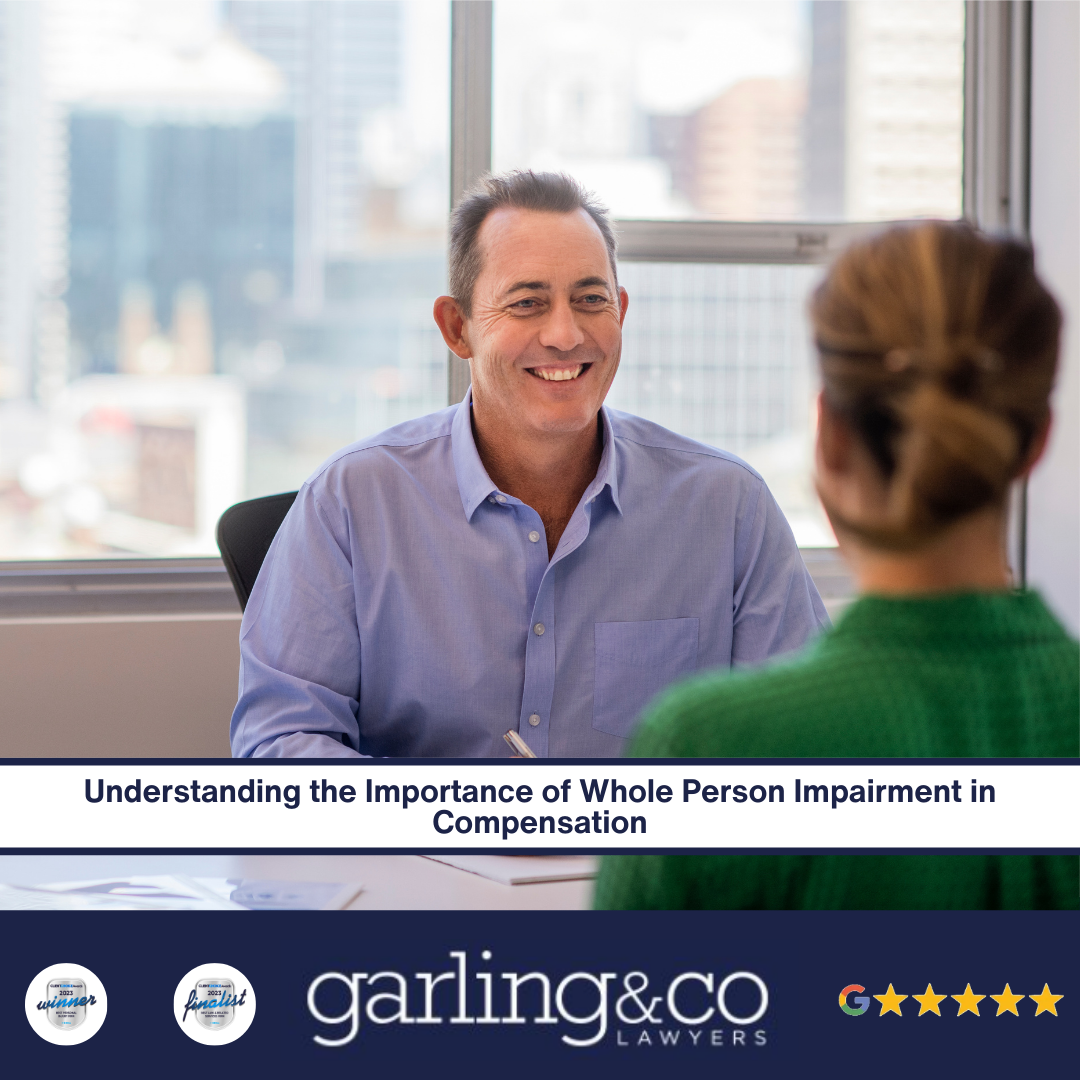Understanding the importance of whole person impairment in compensation
If you have a permanent impairment as a result of workplace injury or illness.
You may be entitled to receive a lump sum payment as compensation. This whole person impairment compensation is in addition to weekly payments and medical expenses that are payable under the Workers Compensation Legislation.
A claim for lump sum compensation for permanent impairment which is made on or after 19 June 2012, is assessed using a method known as whole person impairment.

Quick Links
For claims made on or after 19 June 2012, there is no longer any additional amount payable for pain and suffering unless you are an emergency worker.
The percentage of impairment is critical in a claim for workers compensation as it affects a worker’s rights to compensation in the following ways:
- The percentage whole person impairment determines the amount of lump sum compensation that is payable for permanent impairment.
- The percentage whole person impairment determines whether you are entitled to make a claim for Work Injury Damages.
- The percentage whole person impairment determines for how long you are entitled to receive weekly payments of compensation.
- The percentage whole person impairment determines for how long you are entitled to receive payment for medical expenses including care and assistance.
The amount payable for permanent impairment
The assessment of whole person impairment determines the amount of lump sum compensation payable. A minimum level of whole person impairment of 11% must be obtained to receive any lump sum compensation. If you are assessed as having 10% or less, you are not entitled to any lump sum compensation for impairment.
Work injury damages
To make a claim for Work Injury Damages you must have a whole person impairment of at least 15% or greater. A claim for Work Injury Damages is a claim alleging that you sustained injury in the course of your employment as a consequence of the negligence of your employer.
If you would like to know more about Work Injury Damages claims, please refer to our damages-related articles here.
Weekly payments
The assessment of whole person impairment is now crucial in determining for how long you are entitled to receive weekly payments of compensation.
- If your level of impairment is assessed at 20% or less, the maximum period in which you can receive weekly compensation is 5 years. Between 2 ½ to 5 years there are also additional requirements that you must meet to continue to receive weekly payments. The major additional requirement is that if you have a certificate of capacity that certifies you fit for suitable work, you must be working at least 15 hours per week to continue to receive weekly payments.
- If you have an impairment of between 21% and 30%, then you are entitled to receive weekly compensation until the one year anniversary of your statutory retirement age, subject to the insurer conducting work capacity assessments every 2 years. A work capacity assessment is the insurer’s decision on whether you have any current work capacity and if so, what type of work you can undertake. For more information on work capacity decisions, please see our latest blog here.
- If you have an assessment of impairment of 31% or more, then you are entitled to receive weekly payments of compensation until the one year anniversary of your statutory retirement age as long as you provide WorkCover medical certificates to the insurer.
Medical and related expenses
The level of whole person impairment also determines for how long you are entitled to receive payment of medical expenses.
- If the impairment is assessed at 10% or less, then you are entitled to payment of medical expenses for a maximum period of 2 years from either the date of the claim if no weekly payments are made, or from 2 years after weekly payments stop being payable.
- If the percentage of impairment is assessed as between 11 and 20% whole person impairment then the maximum period you can obtain medical expenses is for 5 years from the date of claim if no weekly payments are made or up to 5 years after weekly payments stop being payable.
- If the percentage of impairment is 21% or greater, or an approved medical specialist has declined to make an assessment of whole person impairment as the worker has not reached maximum medical improvement, or the insurer agrees that the degree of permanent impairment is likely to be 21% or more, then you are entitled to medical expenses for life.
The assessment of whole person impairment is therefore crucial in determining what entitlement to compensation a worker will receive in the future.
It is important therefore to obtain the highest whole person impairment possible.
When and how to make a claim for whole person impairment is critical as you only have one chance to obtain lump sum compensation for whole person impairment and if you get it wrong, it can have serious consequences on your ongoing entitlements to workers compensation.
You need to speak to an accredited specialist in personal injury and an expert in workers compensation to obtain the highest possible whole person impairment.
Please call Matthew Garling of Garling & Co Lawyers on (02) 8518 1120 or email Matthew at mgarling@garlingandco.com.au for further information.












